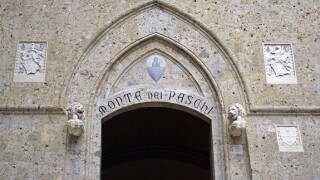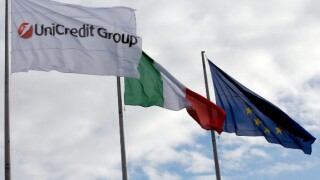Italy
-
Italian companies, accustomed to playing lenders off against each other, are looking for alternatives
-
Tier twos trade violently as deadline for UniCredit deal draws closer
-
Cooperative lender paid up to ensure sub-benchmark size
-
Potential for negative net supply driving demand for paper in senior formats
-
Troubled Italian lender unveils plan to issue first covered bond in over six years, in what could be a prelude to a capital increase and acquisition
-
Banks are seeing light at the end of the tunnel as they emerge from major cost cutting exercises at the same time as economies around the world begin to emerge, erratically, from pandemic restrictions. Now the question is whether there will be enough capital markets business to go around.
-
Banca Monte dei Paschi di Siena’s tier twos are see-sawing in the secondary market, as investors try and determine the fate of the bonds following merger interest from UniCredit.
-
Sports teams could be among the Covid-battered industries looking to tap the capital markets later this year and next, bankers believe, as Italy’s elite Juventus Football Club prepares for a €400m rights issue to repair its finances.
-
Eurizon, the asset management business owned by Intesa Sanpaolo, has hired Federica Calvetti from Deutsche Bank to lead its ESG and strategic activism team in Milan.
-
Banca Monte dei Paschi di Siena’s capital instruments are at risk of being zeroed after UniCredit announced this week that it could buy the state-owned Italian lender on extremely favourable terms. Market participants are more optimistic on Monte’s senior debt, which would rally strongly if included in a merger.
-
Andrea Orcel is looking to clinch a deal for Unicredit to acquire parts of stricken Italian lender Banca Monte dei Paschi di Siena (MPS) in the early part of September after revealing it was negotiating with the Italian government.
-
UniCredit has quickly junked Jean Pierre Mustier’s legacy and forged a new strategy based on greater accountability, but the newly unveiled corporate and investment bank retains plenty of the character of the old one, writes David Rothnie.









